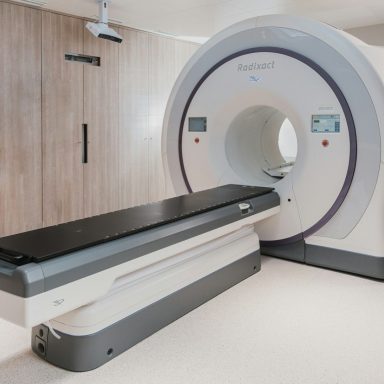Tests for Cardiac Conditions
Investigation for cardiac conditions may involve several different types of test. Scans may be recommended to investigate the heart pumping function, heart valves and to check for narrowing or blocking in heart arteries. ECG monitors can be used to investigate changes in the heart rhythm and tilt testing is used in the diagnosis of autonomic dysfunction such as in Postural Orthostatic Tachycardia Syndrome (POTS).

Cardiac Imaging
Echocardiography may be recommended to check your heart pumping function and to look at the heart valves.
Cardiac CT is particularly helpful for assessing the heart arteries for any narrowing or blocking.
Cardiac MR can look in more detail at the heart muscle as well as other aspects of heart function.
Click below to find out more from the British Heart Foundation....

ECG and ECG Monitors
An ECG looks at the electrical activity of the heart and the heart rhythm. Intermittent disturbances of the heart rhythm can be investigated with different types of ECG monitors such as a 24 hr ECG or a patch monitor. Exercise ECG may be recommended if you have certain symptoms related to exercise.
Click below to find out more...

Autonomic Dysfunction
Autonomic dysfunction can cause dizziness or light-headedness as well as blackouts and symptoms related to rapid heart beats. Conditions which may be detected include postural orthostatic tachycardia syndrome (POTS), Inappropriate Sinus Tachycardia, postural hypotension and vasovagal syncope.
Click below to find out more...
©Copyright. All rights reserved.
We need your consent to load the translations
We use a third-party service to translate the website content that may collect data about your activity. Please review the details in the privacy policy and accept the service to view the translations.